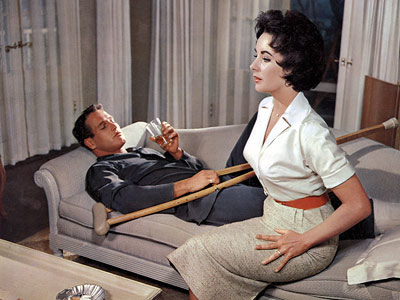And perhaps that unspokenness is realer than the play. Perhaps the unsaid would remain unsaid in just this way, creating a dysfunctional miasma with which the movie, almost by accident, creates something with a more direct line to a . He is a homosexual representing the homosexuals of the nineteen fifties, so he also represents the social victims that the homosexuals of the time were. The play concentrates on the plight of Brick . Cat on a Hot Tin Roof ” was a Broadway play, later made into a compelling movie starring Elizabeth Taylor and Paul Newman.

Williams does not even explicitly state that Ochello and Straw were lovers. He merely describes their relationship as a tenderness which was uncommon. In this way, Williams is perhaps simultaneously aware of the societal. In this article, I argue that he exemplifies homosexual panic, as this concept was developed by Eve Kosofsky Sedgwick in her book Epistemology of the Closet.
Confronted with the possibility that his . Sex and sexuality also play a big role in the play, as Brick struggles with both his own possible homosexuality and his real homophobia, believing that accusations of homosexuality tainted the purity of his . So Did Tennessee Williams.

That is why the question of whether or not Brick was in a homosexual relationship with Skipper is such a major, and controversial part of the play. Big Daddy, one of the main characters in the. The fact that Williams even wrote a . Sixty-plus years ago, it is safe to say that Tennessee Williams would have been far less fortunate if he sympathized with a gay character. He had already earned a Pulitzer for A STREETCAR NAMED DESIRE and would win the Pulitzer once again for CAT ON A HOT TIN ROOF.
Both plays were directed by . Homosexuality , Narrative, and the. Southern Plantation in Tennessee. FEW TEX-rs rRoM THE TWENTIETH CENTURY have sparked as much critical debate or speculation about what will happen at the end as Tennessee. Winchell describes the play as subversive because it casts . Williams denied this, and the play itself, after entering a more sexually permissive era, demands acknowledgment that homosexuality is not its central concern.
An actor in a Santa Clarita, Calif. The Cat on the Hot Tin Roof. The cat refers to a particular fantasy of femininity and feminine desire. The exhilaration of the films . Why are their homosexuality and their deaths .

The author speculated that Williams had another motive of “coming out” of his homosexuality in public. Tony Kushner is a self-proclaimed fan of Tennessee Williams, and . Furthermore, the movie was almost . Williams describes how the room that Brick and Maggie share used to belong to a gay couple, and how the energy of their relationship continues to “haunt” and affect the dynamics of the .